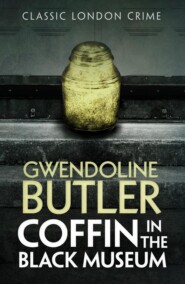По всем вопросам обращайтесь на: info@litportal.ru
(©) 2003-2024.
✖
The Red Staircase
Автор
Год написания книги
2018
Настройки чтения
Размер шрифта
Высота строк
Поля
‘I saw Princess Irene, poor old thing.’
‘Princess Irene?’ She seemed genuinely surprised. ‘It’s not only her. No, no, they’ll use you, turn you inside out and then, if it suits them, abandon you. If all goes wrong, you will either be shipped back home – or at worst, who knows what could happen to you? Don’t you see – it is not what you are but what you will be, what you will possess, that matters to them?’
A wave of nausea swept over her and she retched. I pushed her gently back on the pillows, thinking her more than a little mad. ‘You can’t talk now, you must rest. Presumably you think me in no danger today? And I possess nothing, dear Laure, so calm yourself.’
‘No, not today,’ she muttered. ‘Not today. It is not today that matters. Although I quarrelled today with someone on your account.’
‘Very well then. Tomorrow, tomorrow we shall talk.’
I waited till her eyelids closed and then walked quietly to the door. When I turned round for a last look, her eyes were open again and she was looking towards me. Yet I don’t think that it was me she saw.
‘At last I believe I am free,’ she said softly. ‘I have tried so often to leave Russia. Once I even got as far as Poland – but I always came back. Now I am free. I’ll start a little school in my own town of Blois. It’s what I’ve always wanted to do.’
Her eyelids closed again and she was asleep.
CHAPTER FOUR (#ulink_8e750b5c-6ec2-57a2-b5f1-89f82f53960b)
When I left Mademoiselle Laure, Peter Alexandrov was waiting for me downstairs.
‘How is she?’
‘More comfortable,’ I replied thoughtfully.
‘I was concerned about her. She is not a happy woman. Did she say much to you?’
‘No.’ Had Laure been in love with him? Perhaps even his mistress? ‘But then, she has had a sad life, losing her lover just before they were to be married.’ Of course, I had lost my lover just before we were to marry, but it came to me suddenly that I did not intend to have a sad life. ‘And perhaps feeling the world has used her badly.’
‘I am sure Dolly means her to have a peaceful, contented life here with her, but Mademoiselle Laure is a woman of a jealous, suspicious temperament.’ His voice was calm and kindly. If there had been anything between them, it had long gone on his part. ‘Now you deal excellently with everyone, Miss Rose.’
‘I don’t think Mademoiselle Laure likes me,’ I said frankly. ‘But she has promised to talk to me.’ I broke off. Ariadne had come into the room.
‘How is Mademoiselle?’
‘Resting and recovering, I hope.’
‘Poor Mademoiselle, she hates us here sometimes, I think.’
‘She’s planning to return home to France and open a girls’ school, so she says.’
‘Goodness! Is she? Poor Mademoiselle.’ Ariadne went over and studied her face in a wall mirror. There was a spot that seemed to trouble her. Peter shook his head at her vanity. ‘I’m afraid she won’t go. She always says that when she’s particularly cross with us. But she never goes.’ She turned away from the mirror. ‘Poor us, Rose. To punish me for my sins this morning, Mamma forbids me to ride with Major Lacey this afternoon, and instead I have a whole great dull list of shopping you and I are to do. You are to come too, if you would like to, Uncle Peter, but first you are summoned to go up to Mamma’s sitting-room now. And wear armour, for she is very fierce. She has old General Rahl with her, and you know how disagreeable that always makes her.’
Peter made a grimace. ‘Who is General Rahl?’ I asked.
Peter said: ‘He’s a friend of an aged relative we have living in the house. A retired soldier. Forcibly retired – he was bad at the job. Oh, he’s not a bad old boy, but he’s a policeman now, of a rather special sort. He is a deputy head of the Third Bureau. You’ve heard of that institution, I suppose? It keeps an eye on us all. Well, I’d better join Dolly, or she’ll be asking him to dinner for want of anything better to say.’
When he had gone I said to Ariadne: ‘So you did not mean it when you said “How could such things touch us?”’
Ariadne hesitated. ‘I did. I meant it with part of my mind. When I see us here so happy and contented, with everything about us so nice, I feel this is one world and all the bad things are in another.’
‘But surely General Rahl does not come here to inspect you?’
‘Oh no; he comes here as a friend. But of course, one is bound to think of what he knows about one’s friends, and even about oneself. I believe that the Third Bureau has dossiers on ever so many people.’
‘But surely not on you, Ariadne?’
‘Oh no, I suppose I am of no significance to them, but my mother and Peter have hosts of friends and go everywhere, and some of those friends would be bound to have “doubtful” opinions. My mother has many close friends high in Court circles, of course, so her own position is irreproachable.’
A little later, I passed General Rahl on the staircase. We were not introduced, but he gave me a long, hard look as he went by, as if my face interested him, and he left me with the impression of being a tough customer.
The shopping list was the usual magnificent screed. An order for English biscuits and English marmalade at Eliseev’s – ‘Tiptree’s, please,’ said Ariadne politely to the black-coated assistant, and smiled at me – then on to Brocard’s to choose and purchase soap. I helped her choose tablets of a pale heliotrope that smelt like a late summer garden concentrated and made powdery. Ariadne bought and presented to me a box of three square tablets of pink soap smelling of roses. ‘For you; your name soap.’ Peter Alexandrov also bought some soap. Somehow I could not imagine Patrick buying scented soap, but this action seemed natural in Peter.
Then we went on to Watkin’s, the English bookshop. I suspected the trip there was entirely to please me because Ariadne took little interest in books herself, but she pretended she had to order some new English novels for her mother. ‘There is a new book by E. M. Hull, whom she likes very much,’ said Ariadne. Peter also pretended an errand.
There were some copies of the Hull novel already on display, so I examined one idly while Ariadne transacted another piece of business about writing-paper. It was not the sort of book that found its way to Jordansjoy, where Tibby exercised something of a censorship. Still, Grizel and I had our own ways of keeping in touch with the world, and there was a copy of one of Elinor Glyn’s works that was about the house for several weeks, masquerading as a novel of Sir Walter Scott’s (an author after Tibby’s own heart) without Tibby being any the wiser. E. M. Hull looked as if she wrote in the same vein as Elinor Glyn – I took it for granted E. M. Hull was a woman.
Raising my eyes from the book, I saw that although Ariadne appeared to be examining two different qualities of paper, she really had her eyes fixed on a distant corner of the shop. I followed her gaze. Peter too was watching; he was also watching me.
I saw a group of four people: an elderly woman, soberly but expensively dressed, a girl of about Ariadne’s age, a small boy and, oddly, a burly man in the uniform of a Russian naval rating. Two shop assistants were hovering around them, and a personage who looked like Mr Watkin himself – if he existed – was also on hand. The boy was choosing a toy. Watkin’s had a whole corner of the shop devoted to English toys of one sort or another, the names of which I recognized from my brother Alec’s conversation: Meccano, Bassett and Hornby – magic names to toy railway enthusiasts. Behind the group a shelf was stacked with jigsaw puzzles and English children’s annuals. The boy was choosing a railway engine. I saw him studying the one he held with close care, running one finger delicately over its outline. He was dressed in sailor’s uniform too; it was fashionable for boys then, and for girls also, for that matter. But I did not fall into any confusion about the relationship between the boy and the man, which was clearly that of master and servant; there was plainly a great social gulf between them.
Ariadne put her hand on my arm as if to make sure my attention was directed to them. ‘It’s the Tsarevitch and one of his sisters,’ she whispered.
I looked with interest. ‘Which Grand Duchess?’
‘I’m not sure. The next to eldest, I think, Tatiana. They all have the family face and look alike.’
‘The boy’s different,’ I said.
‘Yes.’ She hesitated. ‘There’s been a lot of – well – talk. They say there’s something wrong with him, that he’s lame or something.’
‘He looks delicate, but normal enough,’ I said. ‘He’s not a cripple.’
‘Still, he often does not walk, the sailor carries him’
‘He’s walking now.’ And indeed as we watched the boy ran along the display of toys, eagerly pointing something out to his sister.
‘Yes, I think that must be the Grand Duchess Tatiana,’ observed Ariadne appraisingly; the girl was, after all, her contemporary, she was forming a judgement of her. ‘Not pretty, really, in spite of what they say, but has a nice expression. Olga, the eldest, she’s called a beauty, but of course one has to say that of Grand Duchesses. The other two are just little girls.’
The brother and sister were studying a book together, the boy pointing something out in an eager way. To me there was something touching about his lively fragility, as if boyishness and enthusiasm would prevail in a weak body. He had a small dog with him, a liver-and-white King Charles spaniel, and as I watched I saw him lean down and give it an affectionate pat. When the dog leapt up eagerly, banging against his young master, the sister ordered the sailor to pick the animal up and carry it. ‘None of your animals are trained, Alexei,’ I heard.
The little group moved down the shop, with the other customers politely standing aside. There was no great fuss, no curtseys, although those gentlemen closest to the party took off their hats; but the shop was very quiet as if noise would somehow have been lése majesté. They came close enough for me to see that the girl was wearing a little bunch of lily-of-the-valley pinned to her jacket, and to smell their scent. She held her brother’s hand and stared straight ahead, almost too shy to acknowledge the weight of all the attention focused on her. Her brother, on the other hand, smiled cheerfully all around. To him, at that moment, the world was good. But he was very slender and fine-drawn compared with the robust solidity of my Alec.
‘My mother says he is all that stands between us and revolution,’ whispered Ariadne.
I was surprised; political judgements did not seem at all in Dolly’s line. ‘Why does she say that?’
Ariadne thought for a moment. ‘I suppose because one can think about him hopefully. He is still so young that everyone can see him as representing what they desire, and he may become it. Who can tell? I think that must be what my mother means.’
The little party were almost at the door now. ‘The show is over,’ said Peter Alexandrov suddenly from behind us. ‘We can go now.’ There was a note of savage irony in his voice.











